Primeval Labs not only wants to support their customers' goals, they want them to truly enjoy each and every product.
Primeval was started and designed to do two things extremely well: Make top tier formulas that deliver the customer the best options for sports supplements, and deliver the best tasting products on the market.
Primeval Labs L-Carnitine Max 3000: Understand the Benefits of Carnitine

Primeval Labs L-Carnitine Max 3000 has 3 grams of straight L-Carnitine per serving, giving us a good chance to recap the known benefits of L-Carnitine supplementation!
Today, we're going to discuss how they live up to their core values of creating top tier formulas that taste great with their standalone liquid carnitine supplement, L-Carnitine Max 3000.
L-Carnitine Max 3000 is an advanced metabolic support supplement that aids calorie burning and fat oxidation ("fat burning") to support increased energy production, weight loss, and exercise performance.
We've seen liquid L-Carnitine before, so what separates L-Carnitine Max 3000 from the rest? First, you're getting a full 3g gram dose of L-carnitine per serving, whereas this dose has often been decreased to 1.5g of L-carnitine per serving in other products.
But we also can't forget about the flavor. Like we've seen with EAA Max and EAA Max Energy, the Cherry Lemonade is light and refreshing and especially hits the spot on a hot summer day. Top tier formula and great taste, that's just the standard that Primeval Labs holds themselves to.
Let's take a look at PricePlow's coupon-powered prices and availability, then get into the science:
Primeval Labs L-Carnitine Max 3000 – Deals and Price Drop Alerts
Get Price Alerts
No spam, no scams.
Disclosure: PricePlow relies on pricing from stores with which we have a business relationship. We work hard to keep pricing current, but you may find a better offer.
Posts are sponsored in part by the retailers and/or brands listed on this page.
This area is reserved for Team PricePlow's upcoming videos.
Subscribe to our channel and sign up for notifications so you catch it when it goes live!
What is L-Carnitine and Why Should Athletes and Dieters Consider Taking It?
We've talked about what makes Primeval Labs and L-Carnitine Max 3000 great, but let's take a deeper dive into exactly what L-carnitine is and why you should add it to your sports nutrition and general health and wellness supplementation regimen. While we focus a lot on performance and body composition, the benefits of L-carnitine supplementation can be enjoyed by every demographic.
Before we get into the specifics of how L-carnitine can benefit different demographics, let's break down what exactly L-carnitine is and how it works.
What is it?
L-carnitine is most abundant in animal-based foods, but can also be synthesized endogenously by the liver, kidneys, and brain[1] from the amino acids lysine and methionine.[1] Because of this, it's classified as a conditionally essential nutrient. This means that if the body's demand for carnitine exceeds its ability to synthesize enough carnitine to meet that demand, then the body will require carnitine from outside sources, such as through diet or supplementation -- otherwise performance and health may suffer.
L-carnitine plays a critical role in energy production. It's an essential cofactor that helps transport long-chain fatty acids into the mitochondria so that they can be oxidized to produce energy in the form of adenosine triphosphate (ATP).[2]
How Does It Work?
So what is ATP and why should we care? ATP is the body's energy currency -- it's the chemical unit of energy that your body uses to do "useful work". Think of your body as a car. The basic unit of "fuel" that makes a car run and do "work" is gasoline. So think of ATP as gasoline for your body. If your body's fuel tank is running on fumes or empty, your body won't be able to do "work".
"Useful work" here means literally anything you ask your body to do – including muscle protein synthesis, neuromuscular adaptations that increase strength, and general recovery from exercise. If you want a great physique and high athletic performance, you have to have lots of ATP.
Production of ATP is controlled by a group of intracellular proteins called the "mitochondrial respiratory chain complex". These proteins (referred to as complexes I-IV) control enzymatic reactions that convert energy substrates like oxygen, carbohydrates, and fatty acids into ATP by way of a metabolic pathway called oxidative phosphorylation. If you remember anything from high school biology, oxidative phosphorylation is broken into three steps:
- Glycolysis,
- TCA Cycle, and
- Electron Transport Chain.
Each step yields different amounts of ATP to be used for cellular fuel.[3]
-
Athletes
So now that we know how L-carnitine works, how specifically does it help to increase athletic performance?
In short, L-carnitine helps preserve muscle glycogen and promote fat oxidation. It also spares the use of amino acids as energy sources during exercise, making them potentially available for new protein synthesis[4] and decreases the accumulation of lactate.[5]
A 2018 comprehensive review summarized the effects of supplemental L-carnitine on exercise performance and recovery in well-trained athletes (aged 16–36 years) and recreationally active adults (aged 18–50 years).[6] The review included 11 clinical trials in a total of 251 well-trained athletes who took 1 to 4 grams L-carnitine or placebo a single time or once or twice daily for up to 6 months. The researchers found that L-carnitine supplements consistently reduced lactate levels and heart rate; increased lipid metabolism, VO2max, oxygen consumption, and L-carnitine plasma concentrations; improved performance; and hastened recovery in some of the studies.[6]
Let's dive a little deeper into some of these benefits starting with muscle glycogen retention:
Glycogen Replenishment with L-Carnitine
Glycogen is a storage form of carbohydrates that is used for fuel. Glycogen storages play a big part in your "pump". Increased glycogen can lead to a bigger muscle "pump" when training, so L-carnitine supplementation may help with preserving your pump.[7]
"L-carnitine function. l-carnitine shuttles long-chain fatty acids inside the mitochondria by forming a long chain acetylcarnitine ester. The complex is then transported into the mitochondrial matrix by carnitine palmitoyltransferase I (CPT I) and carnitine palmitoyltransferase II (CPT II). The fatty acids are then broken down through the process of β-oxidation to deliver the 2-carbon molecules to the Krebs cycle, leading to the generation of energy under the form of adenosine triphosphate (ATP). In addition, by binding an acetyl group, l-carnitine can maintain the levels of Acetyl-CoA and coenzyme A, playing its buffering role."[6]
Secondly, L-carnitine spares the use of amino acids as an energy source during exercise. Under normal conditions, amino acids are pulled from skeletal muscle tissue to fuel energy.[8] With L-carnitine supplementation, these aminos can be used solely for muscle protein synthesis and recovery.
Lastly, L-carnitine can decrease the accumulation of lactate. Lactate (lactic acid) builds up due to metabolic stress and fatigue given to a muscle.[9] By decreasing lactic acid buildup you can increase your muscular endurance, decrease muscular fatigue, and increase the amount of muscle cellular damage. All of these are pivotal for increasing muscle size.
An optimal hormonal environment
For athletes whose main goal is increasing muscle mass, this next benefit is really important. To grow bigger muscles you need to have the right hormonal environment to increase muscle mass and have optimal recovery. Muscle cells aren't the only cells that work more efficiently in the presence of carnitine.
With adequate feeding and water, consumption of 2 grams per day of L-carnitine showed a positive increase in the sensitivity of the body's androgen receptors, as well as increases in the presence of luteinizing hormone,[10] suggesting it may help the body's endocrine system work more efficiently as well. Here's what's crazy from that study: serum testosterone within the blood decreased following LCLT and exercise, which the researchers theorized was due to increased muscle protein synthesis and increased cellular uptake of testosterone![10]
In summary, hormonal optimization is critical in muscle protein synthesis and building quality muscle mass, and having your androgens maxed out gives you the best opportunity to build some quality muscle.
-
Dieters
L-carnitine has long been known as one of the most effective supplements for effective fat and weight loss, so let's break down what makes this supplement so great. Fat and weight loss can occur from L-carnitine supplementation due to L-carnitine's role in transporting fatty acids into the mitochondria and acting as a cofactor for fatty acid oxidation.[11]
A 2016 systematic review and meta-analysis combined the results from nine randomized clinical trials in adults that assessed carnitine's effects on weight loss.[11] The trials included a total of 911 participants. In eight trials, doses ranged from 1.8 to 4 g/day L-carnitine for 30 to 360 days; in the ninth trial, the dose was 15 mg/kg/day for 182 days. Study participants who took carnitine supplements lost an average of 1.33 kg more weight than those who took a placebo, regardless of the study duration or L-carnitine dose.[11]
In general, L-carnitine will work best for those who are either training incredibly hard or have diets deficient in it (low-meat or low-calorie diets):
- Vegans / vegetarians[12-14]
- Senior citizens[15,16]
- Hard-training athletes[6]
Needless to say, the evidence is pretty convincing for how effective L-carnitine supplementation (combined with diet and exercise) can be for stimulating fat and weight loss.
-
Fertility?
One of the more recent and interesting developments regarding L-carnitine supplementation is evidence suggesting that it can play a role in combating infertility. The supplement might play a role in sperm maturation, sperm motility, and spermatogenesis.[17] It might also reduce oxidative stress, which could improve oocyte growth and maturation.[18]
A systematic review and meta-analysis of three randomized clinical trials examined the effects of 1 g/day to 3 g/day L-carnitine or acetyl-L-carnitine for 2 to 6 months on sperm parameters in 201 men aged 20 to 40 years who had infertility.[19] Compared to placebo, supplemental carnitine improved sperm motility by 7.84% and morphology by 4.91%, but did not affect sperm concentration.
Researchers have also examined whether carnitine might improve ovulation and pregnancy rates in females with polycystic ovary syndrome (PCOS), a condition that commonly causes infertility. In one 26-month randomized controlled trial, 170 women younger than 35 years took clomiphene citrate ("Clomid") and either 3 g/day supplemental L-carnitine or placebo from day 3 of their menstrual cycle until the day of their first positive pregnancy test result.[20] Individuals in the group taking L-carnitine had 64.4% higher ovulation rates and thicker endometrial tissue (10.1 mm vs. 6.8 mm) than those in the placebo group. In addition, more participants in the L-carnitine group became pregnant than those who took placebo, and they had fewer miscarriages.
This is still an area of active exploration, but needless to say, it looks very promising for both men and women, and we currently stand by using L-carnitine for fertility.
-
Overall Health
Besides from being a great sports nutrition supplement, L-carnitine supplementation has great benefits for your overall health as well.
L-carnitine supplementation may have a possible benefit in combating neurodegenerative diseases. Carnitine might be conditionally essential in individuals with such conditions because it may support acetylcholine synthesis and help remove toxic compounds to alleviate mitochondrial dysfunction associated with extensive degeneration of brain structures.[21]
In a 2003 meta-analysis of 21 clinical trials, a total of 1,204 adults with mild cognitive impairment took supplements containing 1.5 g to 3.0 g/day acetyl L-carnitine (ALCAR) or placebo for 3 to 12 months. Clinical and psychometric assessment scores were better, and improvements determined by clinicians were greater in supplement users than in the placebo groups.[22] It's worth noting that acetyl L-carnitine is different than what we have in Primeval Labs L-Carnitine Max 3000, however -- the acetyl version may cross the blood-brain-barrier better and is often considered the "nootropic" form of the ingredient.
Beyond that, L-carnitine supplementation may also have possible benefits in decreasing insulin resistance, which can lead to systemic benefits across multiple organ systems. A 2017 meta-analysis included five randomized clinical trials in a total of 631 adults with insulin resistance who took 2 or 3 g/day L-carnitine or placebo for 4 weeks to 12 months.[23] L-carnitine improved measures of insulin resistance, and the benefits at 12 months exceeded those at 3 months.[23]
Dosage and Directions
To support increased energy, performance and weight loss, consume one serving (15mL) of L-Carnitine Max 3000 per day, preferably on an empty stomach. On training days and/or before fasted cardio, consume one serving 30 minutes prior to exercise.
L-Carnitine Max 3000 can be stacked with any other Primeval Labs supplements, including pre workouts, protein powders, amino acid supplements, and intra workouts to help you reach your individual health and fitness goals. If your goal is fat loss, try Ape Sh*t Cutz or Ape Sh*t Heat alongside L-Carnitine Max 3000 to really incinerate fat.
Flavors Available

Another option for dieters - Ape Sh*t Cutz. If you're ready to go ape on the weights... but want to burn some extra fat while doing it, then this intense-yet-affordable pre-workout from Primeval Labs can get you to your goals faster!
Conclusion: Max Out Your Goals
With the release of L-Carnitine Max 3000, Primeval Labs continues to live up to their core values of creating innovative products with great tasting flavors. The 3g serving size is over 1g more than the highly studied 2g recommended dose, so you're getting a great value as well.
This gave us a good chance to recap our knowledge of L-carnitine, so we appreciate the opportunity to look at the latest research. Whether you're looking to increase your athletic performance, increase your fat loss, or increase your health and vitality: go ahead and grab some L-Carnitine Max 3000 and take your goals to the max.
Primeval Labs L-Carnitine Max 3000 – Deals and Price Drop Alerts
Get Price Alerts
No spam, no scams.
Disclosure: PricePlow relies on pricing from stores with which we have a business relationship. We work hard to keep pricing current, but you may find a better offer.
Posts are sponsored in part by the retailers and/or brands listed on this page.
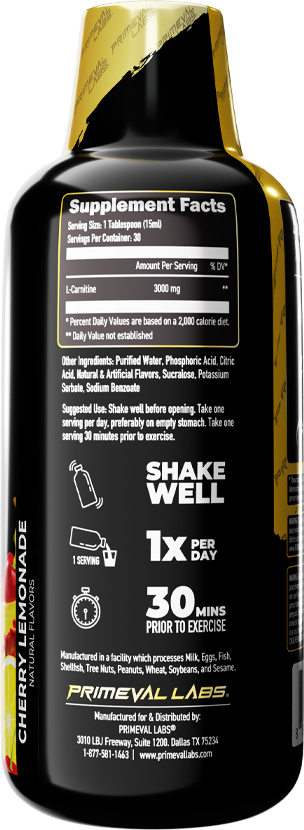
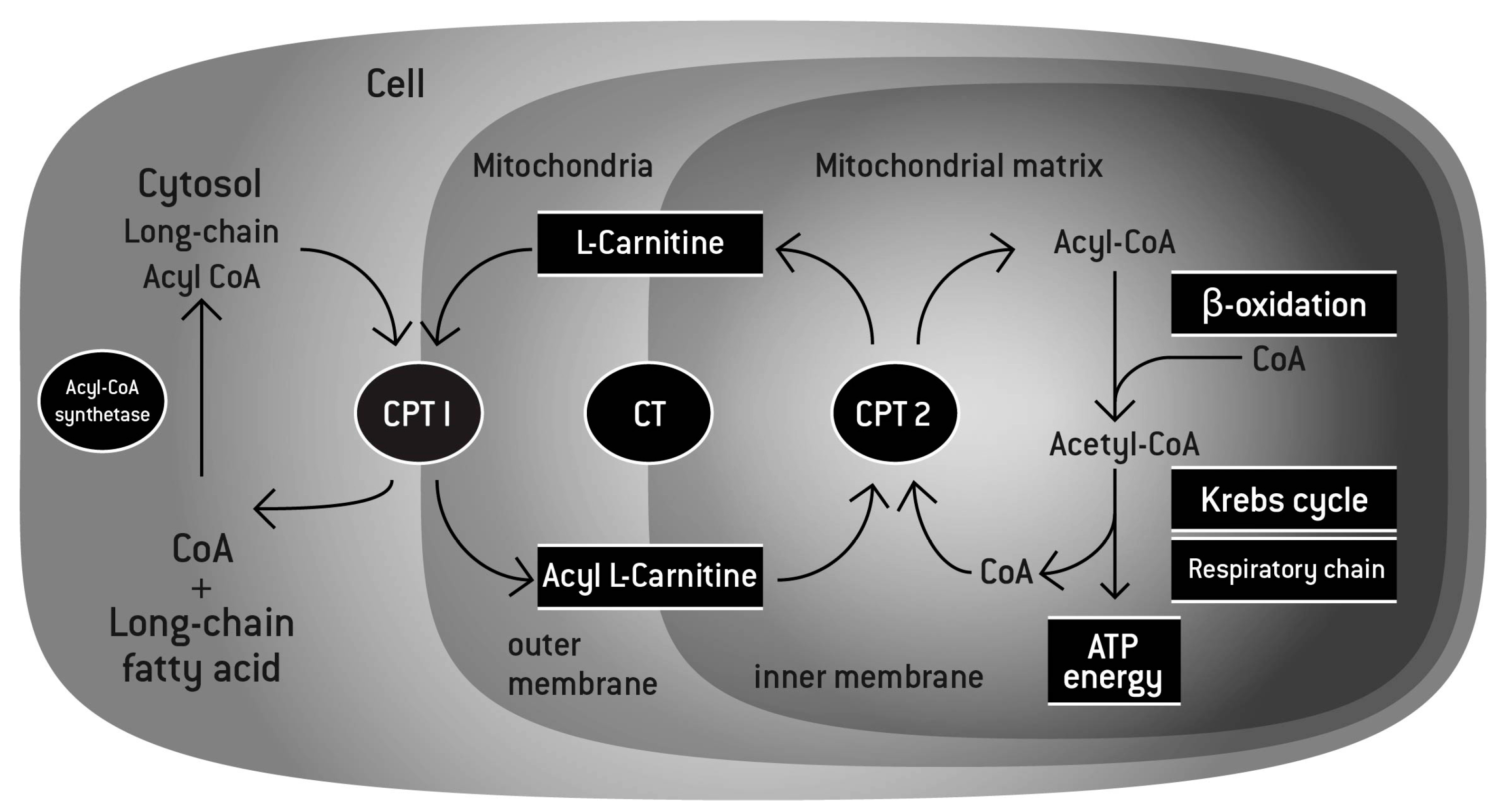
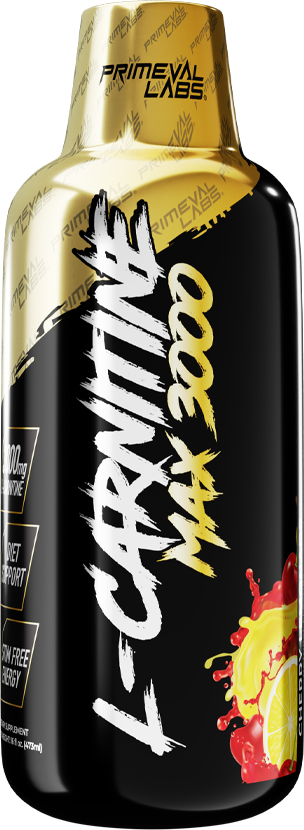
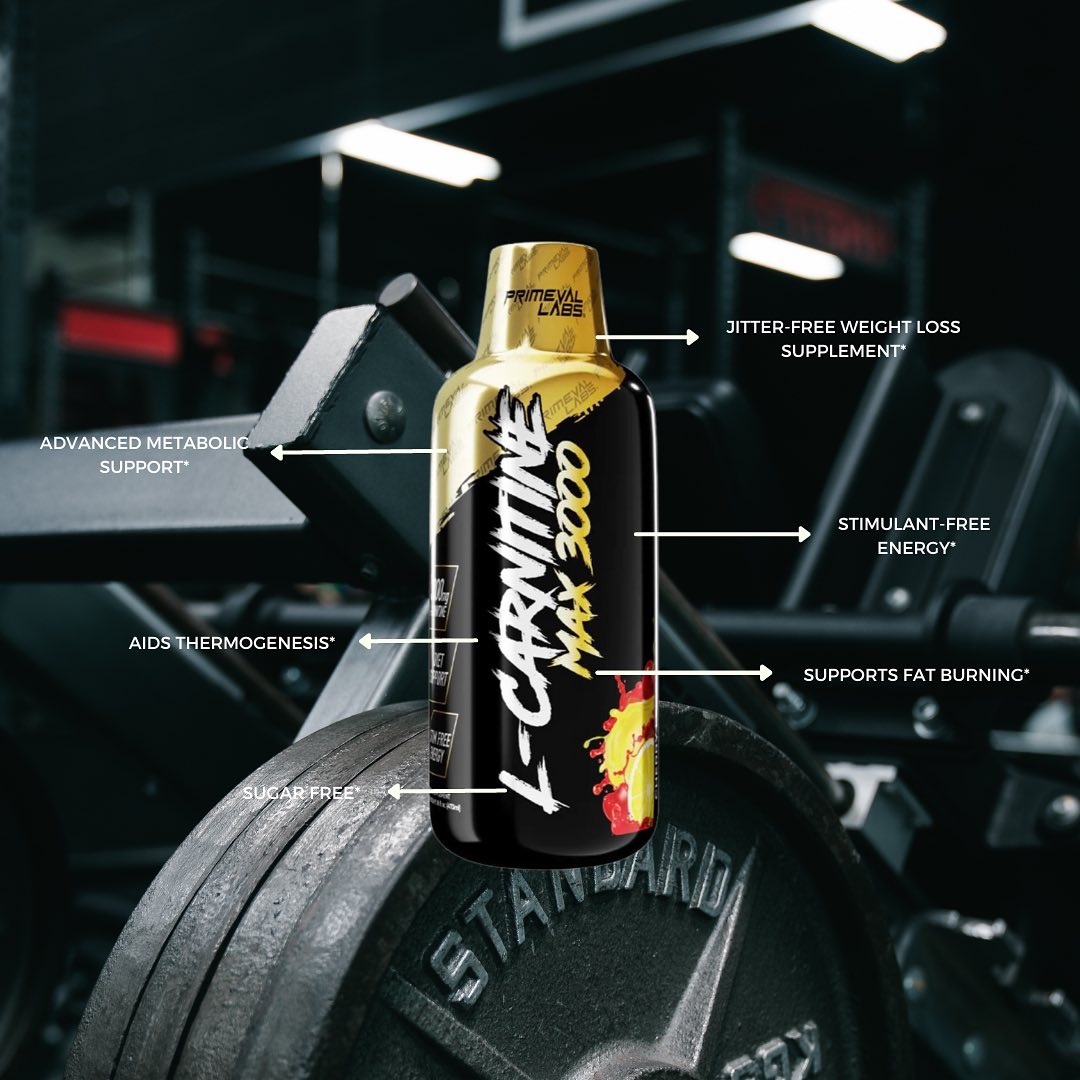
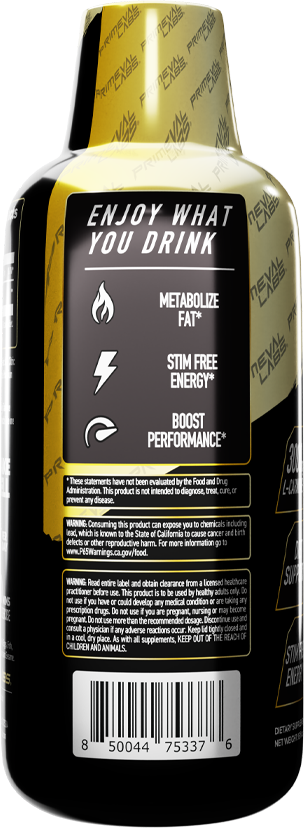


Comments and Discussion (Powered by the PricePlow Forum)